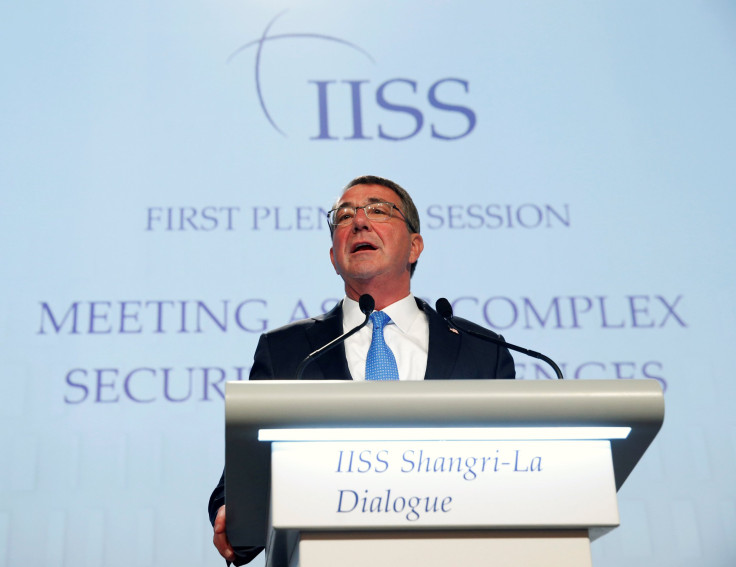South China Sea Controversy: Beijing Risks Building ‘Great Wall Of Self-Isolation’ Over Territorial Dispute, Ash Carter Says

China’s assertiveness in the South China Sea would lead the country to build “a Great Wall of self-isolation,” U.S. Defense Secretary Ashton Carter said Saturday at a security summit in Singapore. Carter also touched upon the upcoming ruling from Philippines’ international arbitration case against China over the South China Sea claims, saying that it is an opportunity for Beijing and the region to recommit to peace rather than conflict.
Stronger bilateral defense cooperation would not result in China’s risk of self-isolation, Carter said. China, which has laid claim to most of the South China Sea, has been building runways and ports on islands in the region.

“There is growing anxiety in this region, and in this room, about China’s activities on the seas, in cyberspace, and in the region’s airspace,” Carter said in a speech to the Shangri-La security dialogue. He termed China’s land reclamation in the South China Sea “unprecedented” and pushed Beijing to join the U.S. in cooperating on security in Asia.
“Countries across the region have been taking action and voicing concerns publicly and privately, at the highest levels, in regional meetings, and global fora,” Carter said. “As a result, China’s actions in the South China Sea are isolating it, at a time when the entire region is coming together and networking. Unfortunately, if these actions continue, China could end up erecting a Great Wall of self-isolation.”
The South China Sea region has been long contested, with Beijing laying claims to most of it. Brunei, Malaysia, the Philippines, Taiwan and Vietnam also have conflicting claims to the waters, through which over $5 trillion of maritime trade passes annually. Beijing’s assertiveness in the disputed region has attracted criticism from several countries, including the U.S., which accuses China of militarizing the region.
China has consistently defended its actions of growing military presence saying it does not have any intentions of starting a conflict and that its operations will add to the contested region's safety. The U.S. Navy has also been sending ships to the South China Sea under freedom of navigation patrols, angering Beijing. A top Marine Corps officer said earlier that the U.S. would continue its operations in the South China Sea and build trust with the countries in the Asia-Pacific region.
© Copyright IBTimes 2024. All rights reserved.












